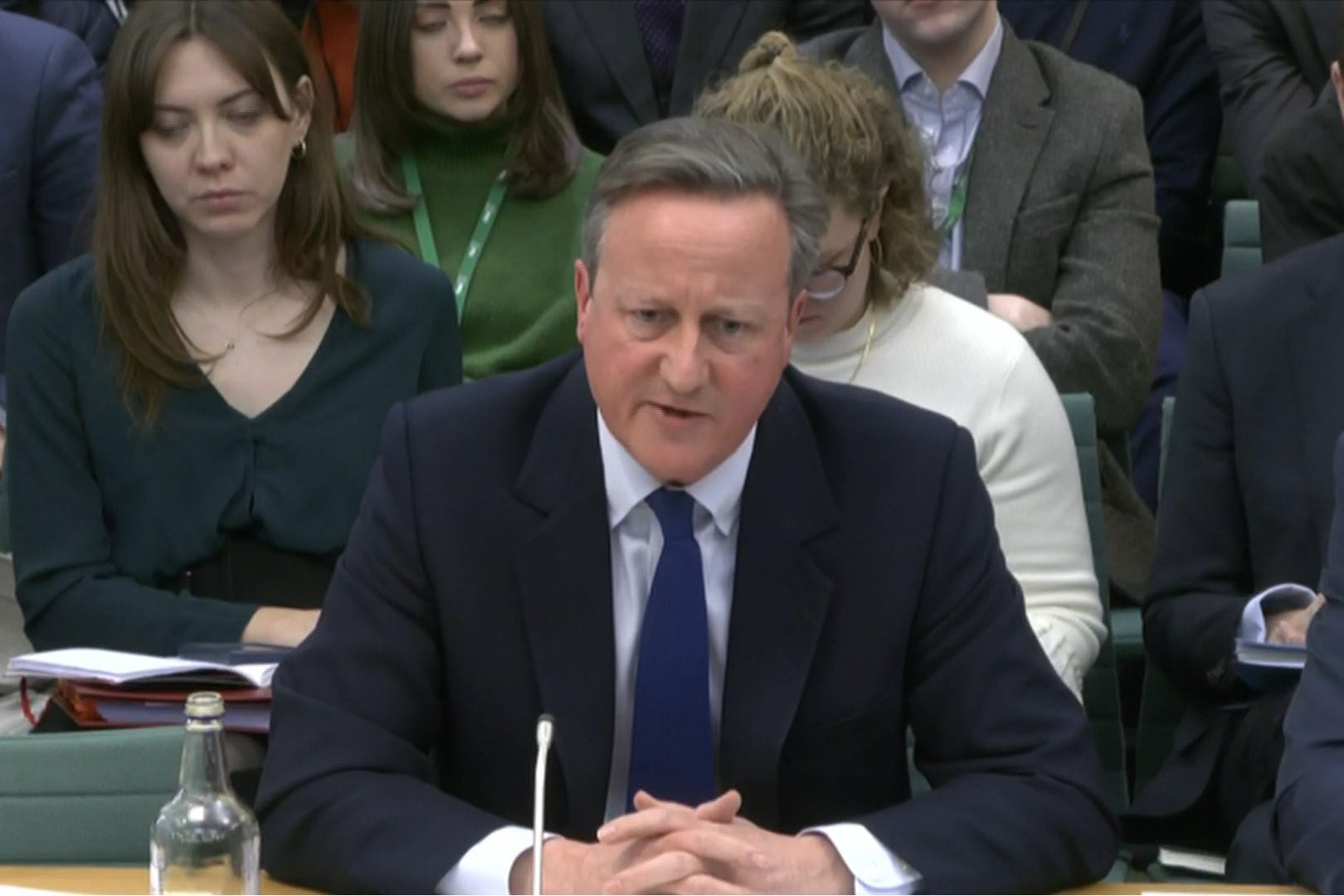Did Israel break the law? Enter Lord Cameron of Unaccountability
David Cameron came to the Commons to refuse to answer questions – just as he did in the Lords, writes John Rentoul


Lord Cameron, the foreign secretary, was polished but unforthcoming in his evidence to MPs on the Foreign Affairs Committee. Asked if he had been advised by lawyers that Israel had broken international law in Gaza, he eventually said, “I don’t want to answer that question.”
So that is what the prime minister means when he says that ministers who are peers will be held just as accountable by the House of Commons as ministers who are actually members of the House of Commons. They can come to a committee to refuse to answer questions just as if they were refusing to answer questions on the floor of the Commons.
Expectations of Lord Cameron’s evidence session had been raised because it is fairly unusual to have a departmental minister in the House of Lords, so this was the first chance that MPs had had to question him since his appointment in November. But also because he had been scheduled to give evidence before Christmas, and had postponed it to attend the funeral of the emir of Kuwait.
If the attack dogs of the Foreign Affairs Committee thought they could find a weak join in the former prime minister’s smooth armour, though, they should have known better.
Could military intervention defeat Hamas, Dan Carden, Labour, wanted to know. Lord Cameron rephrased the question and answered his version. “Can you defeat an ideology through an armed intervention? No.”
He pointed out that Hamas could end the war at any moment if it laid down its arms, which is true but not exactly useful. He and Alicia Kearns, the showy Conservative chair of the committee, tangled for some time over Israel’s responsibilities in international law as the occupying power.
Lord Cameron didn’t want to accept that Israel was the occupying power, because it had withdrawn its forces from the territory in 2005. But Sir Philip Barton, the top Foreign Office civil servant sitting next to him, helpfully pointed out that Gaza and the West Bank were known as the occupied Palestinian territories, which forced his boss to accept that Israel might have some legal responsibilities, “but I am not a lawyer”.
He admitted he was ‘worried’ about whether Israel had broken international law, but couldn’t be sure what was in all the papers that crossed his desk
Kearns then combined with Brendan O’Hara, the Scottish National Party MP, to pin the foreign secretary, metaphorically, to the wall. O’Hara asked Lord Cameron if he had seen any evidence that Israel had broken international humanitarian law: “I don’t want to – I don’t want to…” O’Hara finished his sentence: “Answer it?”
This seemed quite clever, except that Lord Cameron, after persistent questioning from Kearns, finally finished the sentence himself: “I don’t want to answer that question.” Of course he doesn’t. He is the country’s top diplomat. He cannot go around accusing allies of war crimes. The UK would then lose whatever modest influence it has over the Israeli government.
Instead, he struck a careful balance. He didn’t think “we should bandy about terms like ‘genocide’”. He disagreed with the South African government’s attempt to bring a case in those terms against Israel at the International Court of Justice. But there are a lot of grey areas between genocide and a clean bill of health in international law.
He admitted he was “worried” about whether Israel had broken international law, but didn’t want to answer the question because – and this was the only time he seemed to be under pressure – he couldn’t be sure what was in all the papers that crossed his desk. As if there might be a stray sentence in one of them that said that the Israeli Defence Forces were vulnerable to a challenge in some court or other.
But then the committee had run out of time on Israel-Gaza, despite spending nearly an hour on the subject, and Lord Cameron was launching into easier, more consensual language about Ukraine, China and the rest of the world.
It was parliamentary accountability, all right, but that is something that David Cameron has always been rather good at, and so it didn’t feel as if he had been really tested.






Join our commenting forum
Join thought-provoking conversations, follow other Independent readers and see their replies
Comments